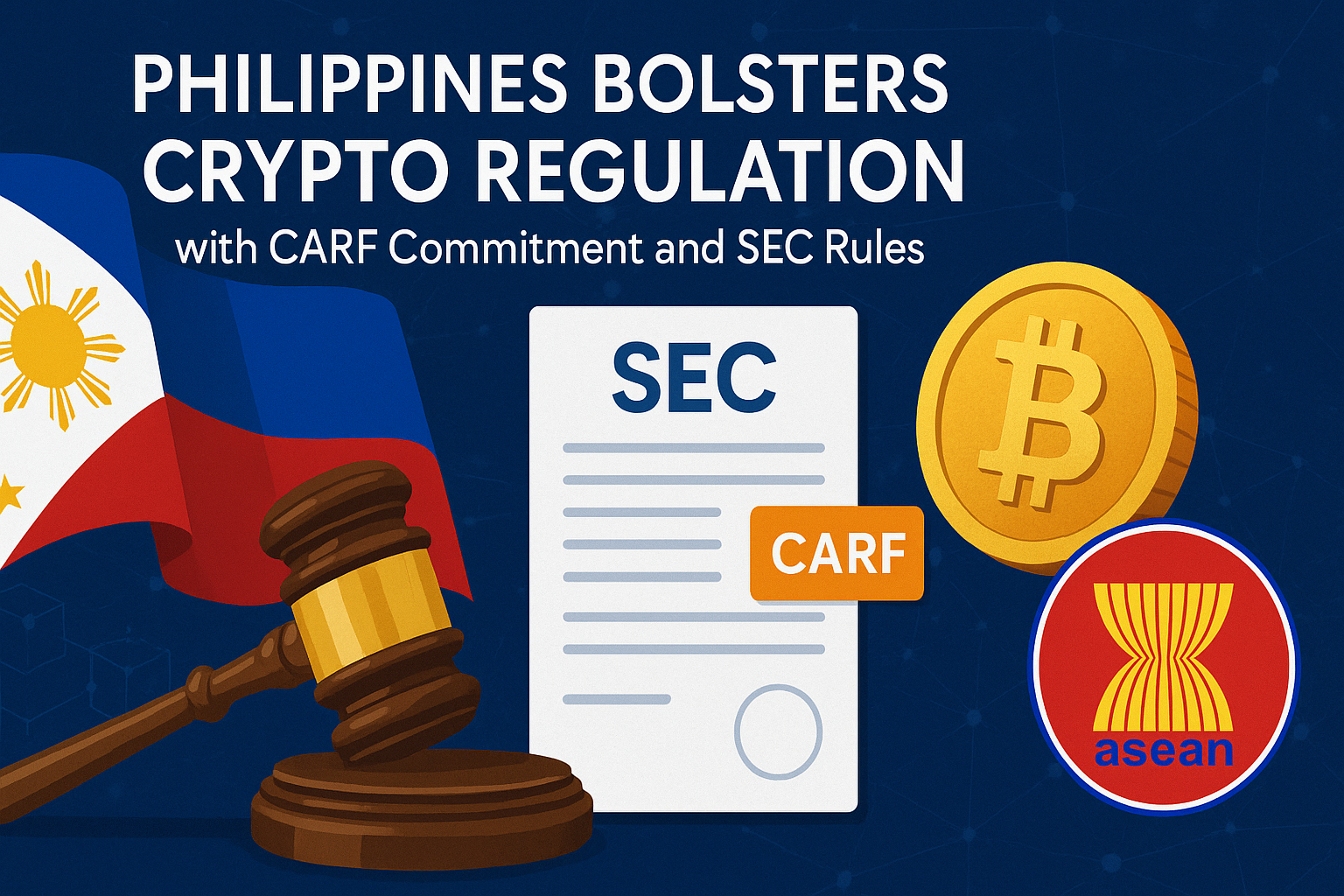In June 2025, the Philippines solidified its position as a proactive regulator in the global cryptocurrency landscape, unveiling policies that balance innovation with financial integrity. As the US-ASEAN Digital Asset Council, we view these developments as pivotal for fostering a secure and vibrant blockchain ecosystem in the ASEAN region.
A Global Commitment to Tax Transparency
The Philippine Department of Finance (DOF) announced its pledge to implement the Crypto-Asset Reporting Framework (CARF) by 2028, joining 67 jurisdictions, including 10 in Asia, to combat cross-border tax evasion and illicit financial flows. Developed by the Organization for Economic Cooperation and Development (OECD), CARF standardizes the automatic exchange of tax information on crypto-assets, ensuring users pay their fair share while curbing illegal transactions. Finance Secretary Ralph Recto emphasized, “This is a timely commitment as digital currency becomes one of the preferred means for transactions.”
With an estimated ₱6 trillion ($107 billion) in Filipino crypto investments, the Philippines’ adoption of CARF signals a robust response to its thriving digital asset market, ranked second globally in cryptocurrency ownership. This move aligns with the country’s recent exit from the European Commission’s high-risk money laundering list, reflecting strengthened anti-money laundering (AML) frameworks. For ASEAN, this sets a precedent for harmonizing tax policies, enhancing regional financial transparency, and attracting responsible crypto businesses.
SEC’s Comprehensive Crypto Framework
Complementing CARF, the Philippine SEC introduced stringent regulations for Crypto-Asset Service Providers (CASPs) under Memorandum Circulars Nos. 4 and 5, Series of 2025, effective May 30, 2025. These rules mandate that crypto entities register as CASPs, maintain a physical office in the Philippines, and hold at least ₱100 million ($1.8 million) in paid-up capital. CASPs must also comply with AML rules, implement Travel Rule-compliant transmissions for crypto transfers over $1,000, and store customer data locally, ensuring compliance with the Data Privacy Act.
At Philippine Blockchain Week 2025, SEC Assistant Director Paolo Ong underscored the intent: “The rules were issued to support local players and go after those unregistered ones.” The framework also establishes a twin-regulator model with the Bangko Sentral ng Pilipinas (BSP), whose moratorium on Virtual Asset Service Provider (VASP) licenses expires in 2025, paving the way for expanded market entry.
Implications for Blockchain Innovation
These policies mark a shift “from moratorium to momentum,” as noted by BusinessWorld, reshaping how crypto businesses operate and investors are protected. While the ₱100 million capital requirement may challenge startups, the clarity of SEC rules positions the Philippines as a leader in digital asset regulation, potentially attracting global exchanges like Binance, which recently aided Philippine authorities in tracing a $3.75 million crypto ransom.
Challenges remain, as highlighted by GCash’s Luis Buenaventura, who noted implementation hurdles for CASP rules, particularly data localization. However, the SEC’s progressive approach, open to refining regulations, fosters a collaborative environment for innovation. Proposed legislation, such as Senate Bill 1842 (“Digital Assets Act”), further signals a comprehensive regulatory roadmap.
Why This Matters for ASEAN
The Philippines’ dual focus on tax transparency and regulatory oversight aligns with ASEAN’s push for financial inclusion and digital economy growth. By integrating blockchain expertise with robust AML/CTF frameworks, the country sets a model for balancing innovation and security. As the US-ASEAN Digital Asset Council, we applaud these efforts and encourage stakeholders to engage in shaping policies that drive sustainable crypto adoption across the region.
What are your thoughts on the Philippines’ crypto policies? How can ASEAN nations collaborate to lead in blockchain innovation? Share your insights below, or contact us to join the conversation on advancing digital assets responsibly.
#USASEANDigitalAssetCouncil #CryptoPolicy #Philippines2025 #BlockchainInnovation

